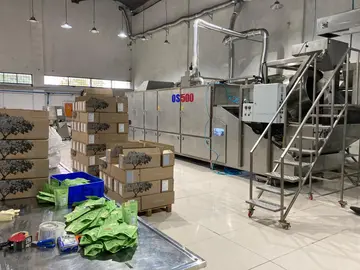How can contract farming improve the welfare of Tanzanian cashew farmers?
September 14, 2023.
Smallholder farmers in sub-Saharan Africa often live in poverty and are food insecure. This is caused by high dependence on subsistence farming, low agricultural productivity, and the lack of off-farm job opportunities. Moreover, high transaction costs [these are costs that do not refer to using factors of production such as capital, labor, and land] are a major hindrance to market access for farmers, posing a further constraint on productivity growth and impeding improvement in rural livelihoods.
Why transaction costs matter
Low-income countries often face pervasive transaction costs which are even more pronounced for smallholder farmers in these countries. In rural Tanzania, for example, transaction costs are incurred by farmers in searching for and accessing markets to sell their products. Transaction costs are also associated with monitoring and enforcing contracts, marketing and price information costs, and transportation costs.
Cashew, a key cash crop
Cashew is a traditional cash crop that is the mainstay of over 700,000 livelihoods in Tanzania, an East-African country with around 72 million inhabitants. As the country’s second-important export product, cashew cultivation generates a major part of the scarce foreign currency. Given the experience of other countries with producing cashew and compared to other crops, cashew contract farming has the potential to minimize transaction costs and increase both agricultural production and food security. We compare this growing scheme with a government-run auction system that fails to deliver both satisfactory prices to farmers and low-price variability, which increases risk. Although selling in these auctions is mandatory, farmers have the option to sell directly to processing firms through formal contracts.
How better market connections can improve smallholder farmers welfare
ZEF research conducted in Tanzania finds that cashew farmers that engage with local processors in contract farming produce a higher output and have lower food insecurity compared to farmers that engage solely on the auction system run by the state’s Cashewnuts Board. Since contract farming is a recent institutional innovation in this sector, our study considers only simple contract farming schemes that cover prices, quantities, and a rough quality standard. The main explanation for this positive effect is twofold. When farmers connect with markets in a more formalized and direct manner they cut transaction costs and these effects are mediated by a reduction of price and market risks. The former has to do with higher output prices received and lower price fluctuations, whilst the latter is related to an assurance that farmers will have a buyer. Although off-farm employment was not specifically analyzed, we can conclude that more jobs in agro-processing firms reduce risk through income diversification.
Why farmers benefit from contract farming
In sum, smallholder farmers accrue welfare benefits by participating in contract farming, namely higher output and better food security. Contract farming schemes and other direct linkages between smallholders and processors can play an important role in modernizing agrifood systems.
Policy recommendations
We propose three policy recommendations. First, improve the efficiency of rural markets by targeting policies to support the engagement between processing firms and small-holders. Second, promote contract farming in the cashew sector to reduce smallholders’ price risk and market risk. Last, support effective government policies, especially the coordination between different government ministries and agencies, which is especially relevant for cross-cutting measures, such as connecting farmers to processors.
Author: André Castro is a junior researcher at ZEF.
Contact: andre.castro@uni-bonn.de
This article was published in ZEF News No. 47.


